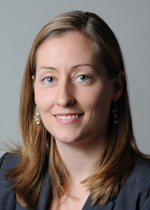Important Dates
Paper registration: March 25Paper submission deadline: March 28Paper acceptance notification: April 23Camera ready date: April 30- Poster/Demo submission deadline: May 30
- Workshop date: July 1
Venue
CCD Workshop is part of the CVPR 2016 workshops.
Please see the CVPR webpage for details on venue, accomodations, and other details!
Latest News
May 9: The program is available
March 23: We are now accepting poster & demo submissions.
February 10: We have three exciting keynote speakers!
February 10: Call for papers is out!
Participate
Paper Submissions
The paper submission deadline is Monday, March 28th. Submissions can be up to 8 pages in length (excluding reference) prepared using the CVPR-CCD Author Kit. Supplementary material can also be submitted if appropriate. Videos should be in a common format, e.g., MPEG-1, MPEG-4, XviD, or DivX. The submission and review process is double blind; avoid providing any information that may identify the authors. Papers accepted to the workshop will appear in both the CVPR proceedings and on IEEE Xplore.
Poster/Demo Submissions
To submit a poster or demo, email us directly at ccd-2016@lists.andrew.cmu.edu with the subject "CCD Poster" by Monday, May 30th. Submissions should include a title, authors, affiliations, and a short description of the proposed poster or demo. We also encourage submitting supporting material (e.g. published papers, videos).
Program
| 8:45 - 9:00 | Welcome and Opening Remarks |
| 9:00 - 10:00 | Keynote 1
Computational microscopy for gigapixel-scale imaging |
| 10:00 - 10:15 | Fast Forward Presentation for Posters and Demos |
| 10:15 - 11:00 | Morning Break + Poster Session |
| 11:00 - 12:00 | Papers Session 1
Depth Camera based on Color-Coded Aperture
SparkleGeometry: Glitter Imaging for 3D Point Tracking
Time-offset Conversations on an Automultiscopic Projector Array |
| 12:00 - 13:00 | Lunch (on your own) |
| 13:00 - 14:00 | Keynote 2
A Systems Approach to Designing Computational Cameras |
| 14:00 - 15:00 | Papers Session 2
Avoiding the Deconvolution: Framework Oriented Color Transfer for Enhancing Low-Light Images
Power-efficient Cameras Using Natural Image Statistics
Strategies For Resolving Camera Metamers using 3+1 channel |
| 15:00 - 16:00 | Afternoon Break + Poster Session |
| 16:00 - 17:00 | Keynote 3
Computational Near-eye Displays |
| 17:00 - 17:15 | Closing Remarks and Best Paper Award |
Keynote talks
-
Speakers
Laura Waller, Assistant Professor at UC Berkeley
Rajiv Laroia, Cofounder and CTO of Light
Gordon Wetzstein, Assistant Professor at Stanford University



Workshop chairs
-
Matthew O'Toole, Stanford University
Jean-Charles Bazin, Disney Research Zurich
Aswin C. Sankaranarayanan, Carnegie Mellon University
El Mustapha Mouaddib, Université de Picardie Jules Verne
Committee members
-
Abe Davis, Massachusetts Institute of Technology
Ayan Chakrabarti, Toyota Technological Institute at Chicago
Belen Masia, Universidad de Zaragoza
Changil Kim, ETH Zurich
Douglas Lanman, Oculus Research
Felix Heide, Stanford University
Huixuan Tang, University of Toronto
Imari Sato, National Institute of Informatics
Ioannis Gkioulekas, Harvard University
Jason Holloway, Rice University
Kaushik Mitra, Indian Institute of Technology Madras
Kristin Dana, Rutgers University
Mohit Gupta, University of Wisconsin-Madison
Oliver Cossairt, Northwestern University
Roarke Horstmeyer, California Institute of Technology
Srikumar Ramalingam, Mitsubishi Electric Research Laboratories
Supreeth Achar, Carnegie Mellon University
Tomas Pajdla, Czech Technical University in Prague
Yasuhiro Mukaigawa, Nara Institute of Science and Technology
Yebin Liu, Tsinghua University
Yuichi Taguchi, Mitsubishi Electric Research Laboratories
Zhuo Hui, Carnegie Mellon University
Sponsors



